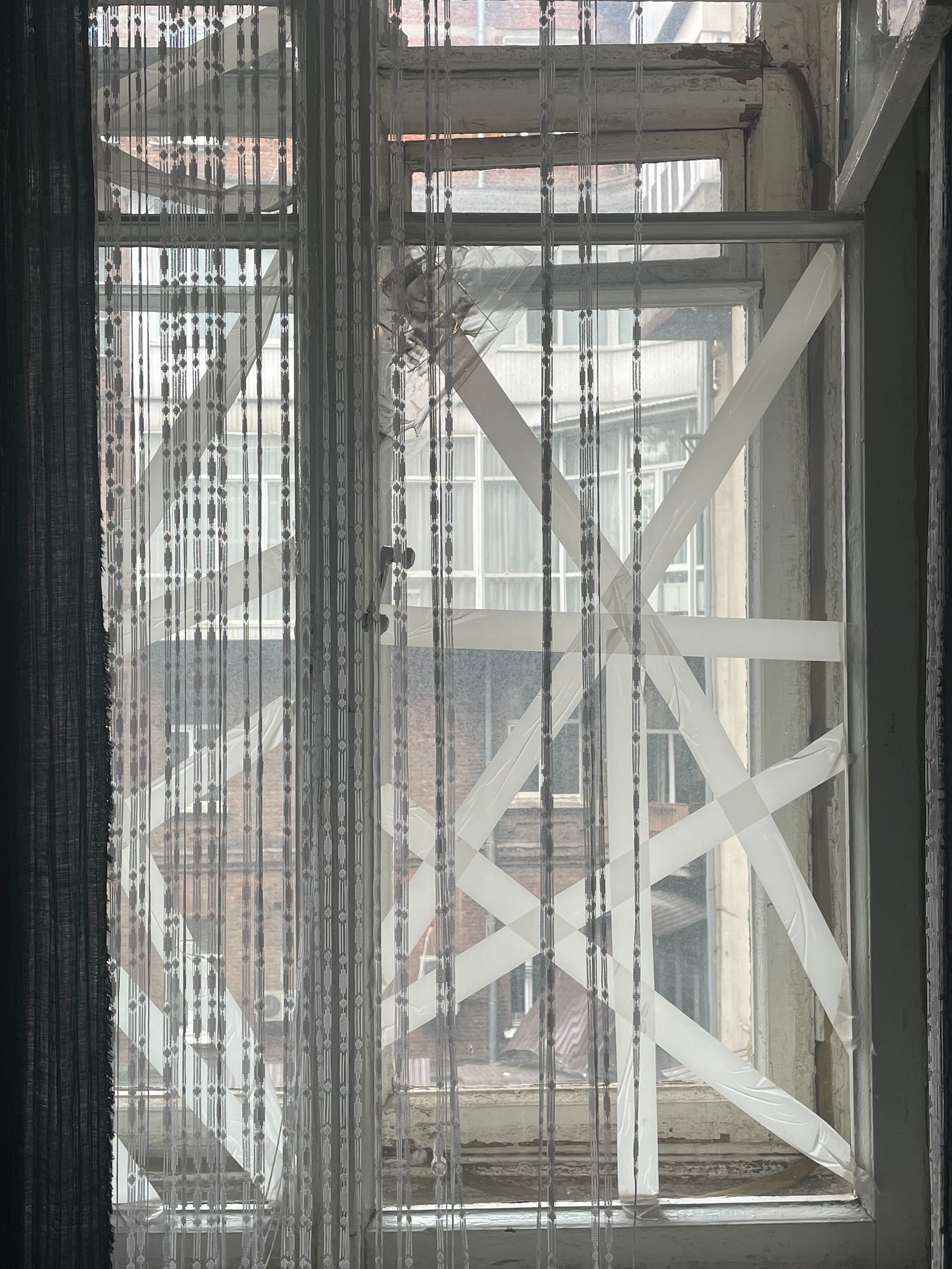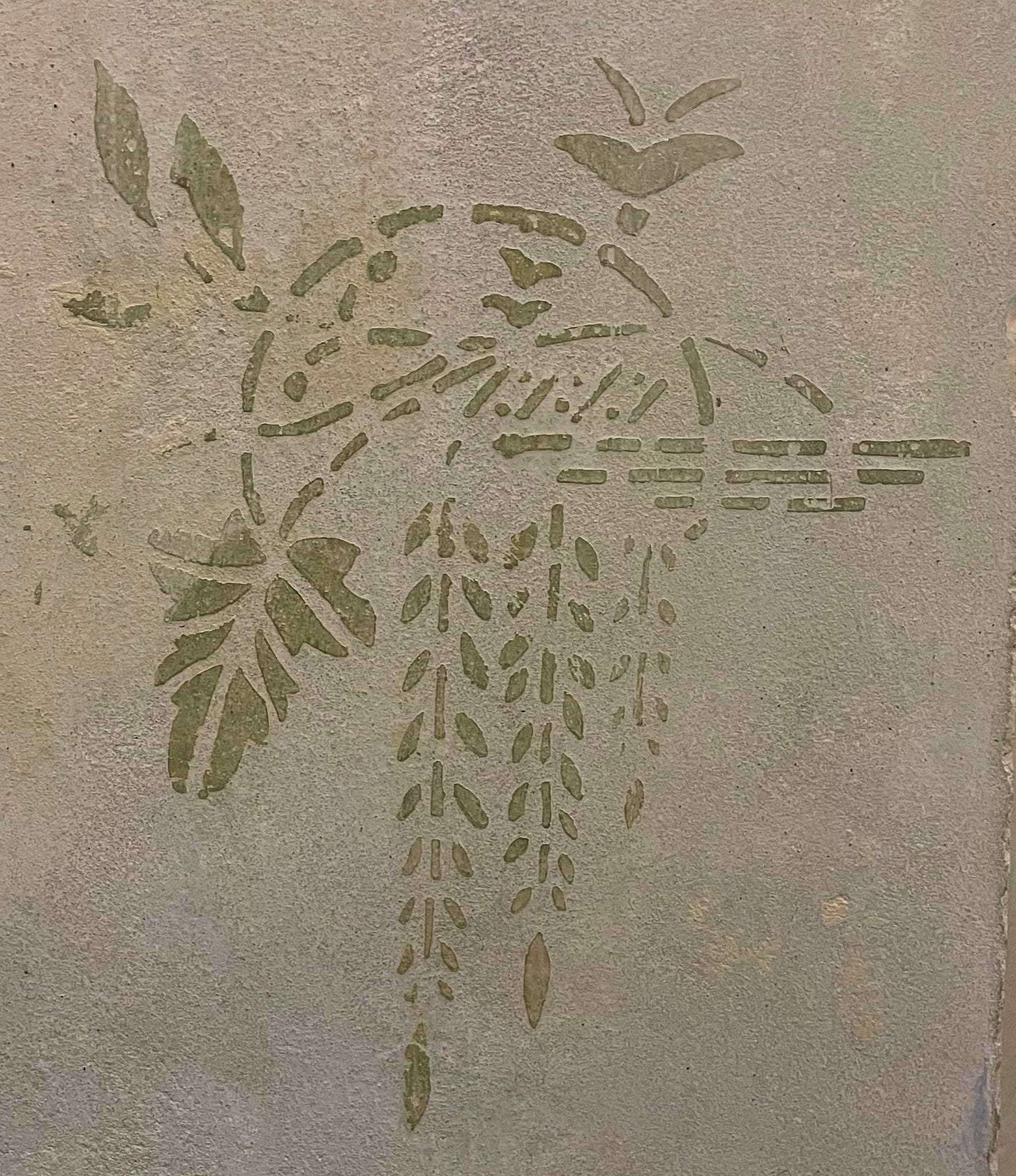When you only have one principle, and you give it up, you have none. Then your bodily comfort seems to be the only reality, all that matters. This is something that I gathered from the writings of the Ukrainian linguist George Shevelov, who lived through communist faith and communist terror in Kharkiv in the 1920s and 1930s, in what was then Soviet Ukraine. After the Second World War he left the country and eventually became a distinguished professor at Columbia University. He appears in my book On Freedom.
I try to keep in mind the converse, which to myself I think of as Shevelov’s Rule: if I care about a number of things, then I am going to take some small hits here and there, in discomfort or pain or sleeplessness or somesuch. In my easy academic life, this price is always a small one. It does help me, though, when I am suffering this or that minor unease, to think that it just might be because I am doing something worthwhile.
This line of thinking helped me, for example, last Saturday the 14th, when I was running a race in Kyiv. The director of the Kyiv School of Economics had generously offered to host a lecture while I was in town, and I had agreed. And then he had the idea that, in addition to the lecture, I would join a run that would raise awareness of Ukrainians in Russian captivity — a subject of concern to his institution and a subject on which I had written. In the end a thousand people came and I gave a very quick talk and then ran a very slow race.
It was slow because I was hurt. In normal circumstances I would not have run that day. But there was that big group there. And among the runners were survivors of Russian camps, members of families of people killed in captivity or still held in captivity, active-duty soldiers who took some of their time from leave to join in, civil-society and trade-union activists who have been doing important and self-sacrificing work, business people who have organized charities. Some of these people had faced real physical trials — not just the trivialities that were hindering me. Some of them were running, to be clear, despite injuries that will not heal. And so I ran, or jogged really, and talked to people at the end, people who had stories I needed to hear: for my own research, and for my own good.
As the miles passed, I thought of the week gone by, of the Ukrainian friends and colleagues who were taking real risks and enduring deep suffering while carrying out their work in academia, journalism, or art. That race was at the end of an important (for me) visit to Ukraine, where I had occasion after occasion to admire Ukrainians who were affirming and creating values in areas close to mine.
Exactly a week before came an encounter with INDEX, the new Institute for Documentation and Exchange in Lviv, which exemplifies the values of diversity and endurance. Inspired by past attempts to document atrocities as they were happening, including the Fortunoff Video Archive for Holocaust Testimonies at Yale, INDEX continues the work (begun by the Institute for Human Sciences in Vienna) of screening thousands of applications and distributing hundreds of grants to Ukrainian journalists, scientists, writers, archivists, librarians, and others. The grantees exploit their own individual disciplinary and professional skills to document the war for a planned multimedia archive. These are all people who were facing risks that people beyond war zones do not face, and who wanted to do the work that they were capable of doing. At the launch event, I spoke to Serhiy Zhadan, an extraordinary Ukrainian writer, who has enlisted in the armed forces. A few days later I visited some members of his brigade near the front, where I was surprised and happy to meet a historian I admire.
The next admirable Ukrainian institution was the Ukrainian History Global Initiative, which embodies the values of cooperation and innovation. This is a multinational and multidisciplinary effort to write a deep, global history of Ukraine, from the formation of the land itself and its initial settlement through prehistory and the historical periods to the present. It involves well over one hundred scholars from Ukraine and around the world. In Kyiv, the Ukrainian team organized a beautiful conference that hosted about sixty scholars, about a third of them coming from abroad, including from throughout North America (three historians from Connecticut, I am happy to note). Ukrainian universities and research institutions are represented, joined by colleagues from (for example) Cambridge, Oxford, and Harvard. Important representatives of these institutions and others have pledged to cooperate in the hundred or so workshops that will be planned in Ukraine and elsewhere these next three years.
INDEX and the Ukrainian History Global Initiative would be unusually large and ambitious endeavors of their kind even in peacetime, even in the best of conditions. My Ukrainian colleagues are all going through hardships that I am not, and many of them have suffered terrible losses. Some scholars in each project are in the armed forces in a time of war, others have lost friends and family, others are refugees... And yet colleagues see the sense in serious scholarly work, and want to cooperate with colleagues in and beyond the country. This, for me, is inspiring.
In Kharkiv, Shevelov’s hometown, it seems fitting to speak of the values of resistance and insistence — on culture, despite everything. Close to Russia’s border, Kharkiv is vulnerable to missiles, which can arrive in less than a minute. And yet teachers do their best to run the schools, which have to be underground. It was easy for me to visit Kharkiv, welcomed by a whole series of institutions: UkraineWorld, Kharkiv Media Hub and the famous Literary Museum. Attendees of my discussion with the philosopher Volodymyr Yermolemko included colleagues and students from Kharkiv’s Karazin University. The founder of Ukrainian Catholic University was in the first row. After the event I had dinner with soldiers, activists, artists and curators.
The Literary Museum’s director, Tetyana Pylypchuk, took me the next day to see Shevelov’s apartment. It has now been transformed into a site of pilgrimage for Ukrainian writers (and writers on Ukraine), who in better times might come here to write their books.
Shevelov’s Rule: if you affirm many values, there will be some sort of bodily price, some sort of risk, smaller of larger. For the lucky ones, like me, beyond the war zones, it is just a matter of a slapped wrist or a look askance. In Shevelov’s native country, where the occupier murders writers, raids museums, bombs archives, and burns books, the risks are infinitely greater.
Academic work, journalistic work, artistic work — beyond the war zones, it can all seem like just a job. But there are people who love these forms of activity because of the values they affirm in carrying them out, and who bear costs and take risks for continuing to research, learn, and create. During my time in Ukraine I was proud to learn from them.







This is one of your best, Prof. Snyder.
On a different topic, but still involving the subject of corporeal politics: Early yesterday evening I heard a knock on the door. It was someone canvassing for a candidate for Mayor of the city of Austin. So we chatted for several minutes as she told me about her preferred candidate, when suddenly she said, "You're the only person I've met who's made eye contact with me." Which put me in mind of your own reported experience of canvassing. I told her about why eye contact and making small talk are so important. Almost all of us in Austin are Democrats--you can just assume that a person standing next to you that you've never met is a Democrat--so I was able to relate what she said to a potential Trump dictatorship. After she left, it occurred to me that I still have my copy of the old (unillustrated) edition of On Tyranny, so I found it, got into my car, found her at the end of my street, rolled down the window, and gave it to her. She was taken aback that I would get into my car to try to find and give it to her. I said, "Look at Lesson 12! Make Eye Contact and Small talk!" She told me that she is a book lover, and will read it.
As always, thank you for all your work and for keeping Ukraine and its history in the foreground of our lives and minds. Sometime in the Spring of 1980, while I was a graduate student in Slavic Linguistics at Yale, I had the unforgettable pleasure of visiting Prof Shevelov at his apartment near Columbia University. I had just returned from spending 6 months teaching English in Kiev and considered his book A Prehistory of Slavic as one of my favorites, and so I had many things I wanted to discuss with him, the most important of which was an idea I had for my dissertation topic. I don’t recall now whether we actually discussed my topic, but what I do recall most of all was Prof Shevelov’s fascination with owls. As our discussion progressed, he started pointing out various owl figures he had around his apartment: various carved owls, owl clock faces (if i remember correctly), large and small owl figurines and drawings - they seemed to be all over the place. Having read your article, I am reminded how much stock Prof Shevelov put in wisdom and how well this was reflected in his owl menagerie.